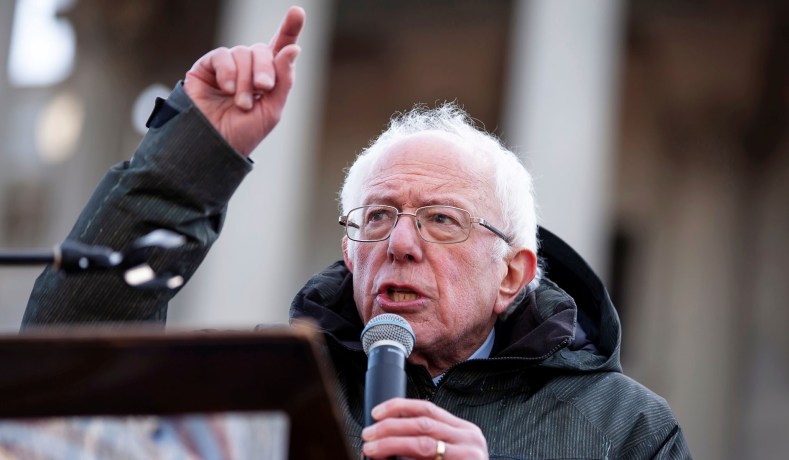
Bernie Sanders declared during a CNN townhall yesterday that he had changed his mind and will not release any more of his medical records. Sanders is a 78-year-old man who had a heart attack in October; at the time, the senator’s campaign said he had been hospitalized with “chest pains,” and three days later announced he had a heart attack and that doctors had inserted two stents.
Afterwards, Sanders pledged to release his full medical records, telling reporters, “I want to make it comprehensive.” At the end of 2019, his campaign released a letter from his doctor noting that he experienced “modest heart muscle damage” but that his heart function was now “stable and well-preserved.” Sanders has decided the letter from his doctor is comprehensive enough and that requests for the full records constitute a “smear campaign.”
In normal circumstances, this would be a target-rich environment for a Republican opponent in the general election. But in normal circumstances, the incumbent Republican president would not have dictated his own health assessment to be transcribed by his doctor, as Harold Bornstein, a gastroenterologist from Lenox Hospital in New York, described in 2018.
About a year ago, U.S. Navy Commander Sean P. Conley issued a statement after President Trump’s annual physical: “While the reports and recommendations are being finalized, I am happy to announce that the President of the United States is in very good health, I anticipate he will remain so for the duration his presidency, and beyond.” In November, Trump had an unscheduled visit to Walter Reed National Military Medical Center; Conley later issued a statement saying it was a routine “interim checkup.”
The standard comparison here for candidates’ health secrecy is Paul Tsongas.
In 1992, Massachusetts senator Paul Tsongas was one of the leading candidates for the Democratic nomination. He had been treated for a form of lymph-node cancer, or lymphoma, from 1983 to 1986, but when he ran in 1992, he declared himself “cured.” Tak Takvorian, Tsongas’s doctor at Harvard’s Dana-Farber Cancer Institute, told reporters, “I’m very confident that he’s fine.”
Tsongas won the New Hampshire primary but lost ground to Bill Clinton and withdrew from the race in March. It did not take long before it became clear that had he won the race, the best-case scenario was that the new president would have faced enormous challenges. In December 1992, he announced that a new growth in his abdomen was cancerous, and he underwent chemotherapy and radiation treatment. He spent a good portion of the next four years in hospitals, dealing with complications from the treatment. Had Tsongas been elected in 1992, he would not have lived to the end of his first term: He died on January 18, 1997, two days before Clinton’s second inauguration.
Every candidate who seeks to hide, downplay, or obscure his or her health issues is forgetting something: Hiding the problem from the electorate doesn’t mean the problem doesn’t exist. At some point, the body of the president or candidate gets to speak about what ails it in its own way, in a manner not easily hidden from the public.


